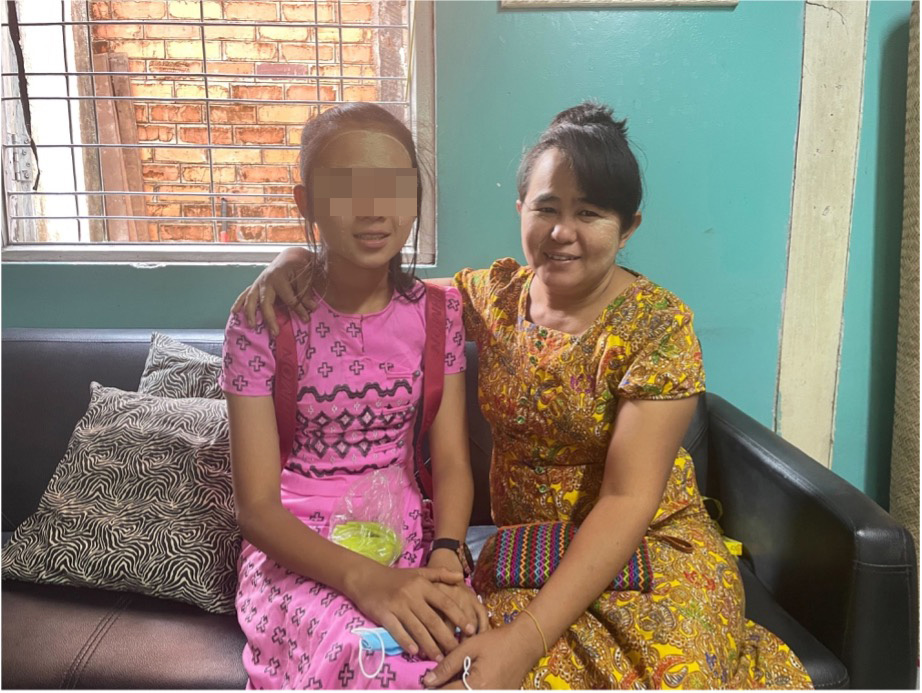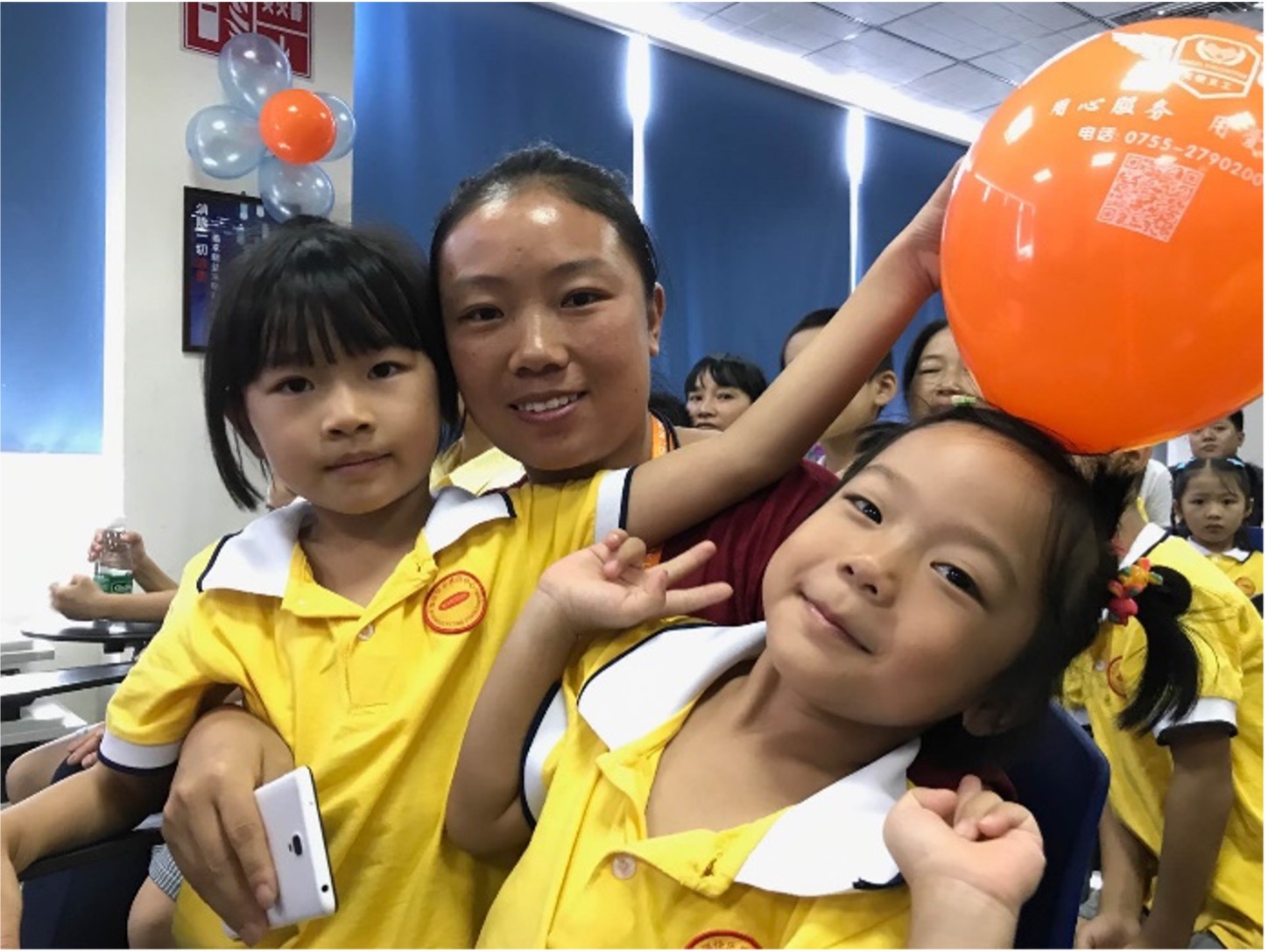
In recognition of 2022 International Women’s Day, we have compiled three stories that highlight the various ways The Centre’s programmes empower female workers and advance gender equality. Parents’ working conditions – from the wages they receive to their working hours to their contract types – have a direct impact on the wellbeing of their children. And as we’ve all too sadly learnt during these pandemic years, workers’ wages and access to social security are not a given. Around the world, millions of workers contributing to global supply chains have been laid off, or have had their salaries significantly reduced or delayed. More and more, we are hearing about children having to quit school for good to work, just so that they can keep a roof over their heads and basic food on the table.
That is why The Centre has always considered the wellbeing of parent workers one of its core child rights pillars and service areas. The following three stories illustrate how supporting mothers in the workplace not only empowers female workers, but also has a direct, positive impact on their children.
1. A Factory Empowers Working Mothers to Continue Breastfeeding While Working in the Philippines
In 2021, The Centre teamed up with Save the Children Philippines (SCP) to conduct a child rights impact assessment in a supplier factory of an international brand in the Philippines. This assessment revealed that nursing workers had to flush their breastmilk down the toilet during working hours because there were no facilities in the factory to store breastmilk. There was also no way for workers to directly breastfeed their children as there was no day-care facility within the factory.
The factory in question was committed to addressing this issue. Together with The Centre, Save the Children and the brand, a family-friendly policy and roll-out plan was developed in collaboration with the factory. The recommendations and steps outlined in the policy have since been turned into action, with construction of a designated lactation room and child-friendly space currently under way.
Thanks to these steps, nursing workers will no longer have to discard their breastmilk, and can instead give it to their infants later. And they’ll have the additional option of placing their children in the child-friendly space during working hours, giving them the opportunity to directly breastfeed their babies during breaks.
2. A Child Labour Remediation Programme Enables Mother and Daughter to Run their Own Business in Myanmar

This is the story of Mrs. Zin Mar and her daughter Na Yi in Myanmar. During the pandemic, both Mrs. Zin Mar and her husband were injured in a traffic accident and unable to work. Overnight, the burden of making ends meet landed on the shoulders of the then 15-year-old Na Yi and her older sister.
Na Yi quit school and found a job in a garment factory. She was identified as engaging in child labour by an auditor due to the long working hours she put in and her case was referred to The Centre for remediation. As part of the remediation programme, Na Yi was enrolled in a vocational school to learn sewing. Very quickly Na Yi made great strides in the course and her mother soon realised that Na Yi’s sewing skills had surpassed her own. She could also see that these newly acquired skills created new opportunities for the family.
Together, the mother-daughter duo gained the confidence to run their own tailoring business. They have since successfully opened a tailor shop and are looking to expand the business to a busy market area in Yangon, where they anticipate their income to increase.
“I really thank The Centre because through this programme my daughter aquired a lot of sewing skills and because of her I have more confidence to expand my tailor shop. Now she makes dresses for me and for herself as well,” Said Mrs Zin Mar.
3. A Child Friendly Space in China Enables a Mother to Hold on to Her Job Over the Summer

Mrs. Li was originally from the Sichuan Province, but now lives in Heyuan, Guangdong Province. She works in the Product Storage Department of a factory supplying an international brand. Her husband works in another factory in Shenzhen. Their two daughters, aged 5 and 7, live in Sichuan and are taken care of by the grandparents.
For Mrs. Li, leaving her children behind is far from ideal and pains her immensely. During the summers, Mrs. Li would always make the effort to travel back to Sichuan to spend time with her children and to relieve the burden on her aging parents. But that also meant that each summer, Mrs. Li had to quit her job.
“I have no choice but to resign during every summer vacation to take care of my girls. I brought them to Shenzhen last summer and we lived in the dormitory. It has been over three years since I started to work here, and every summer vacation, I have to quit my job to go home for my girls,” said Mrs. Li.
That all changed when her factory decided to open a Child Friendly Space during the summer. Implemented by The Centre, the space allows children of workers to spend the summer near their parents. During working hours, the children are taken care of by teachers and trained staff, who offer a daily curriculum of fun games, outings and classes – all completely free of charge.
Thanks to CFS, Ms. Li was been able to bring her children to the factory from Sichuan and spend the whole summer together. The family were put up in a family-dorm and could spend precious quality time together.
“Even though we are truly tired, working in the daytime, and doing chores at night, it’s worth taking them here. They are happy, truly delightful. It is entirely worthwhile. This programme is definitely wonderful,” Ms. Li told The Centre.
“It is really nice for my factory to launch such a programme. I’m sure more workers will bring their children here if it starts earlier next year. How wonderful that we do not have to quit to be with our children. When I brought my daughters to CFS in the morning this summer, all my neighbours working in other factories nearby admired me so much and never expected that a factory would treat its workers so well,” she added.
The Centre offers a range of services to support parent workers and advance child rights, among them a WeCare Plus programme that includes a strong gender equality focus. To learn more about our services, please contact us.
By using this website, you agree to our use of cookies. We use cookies to provide you with a great experience and to help our website run effectively.